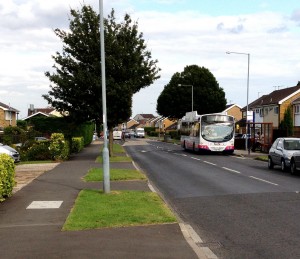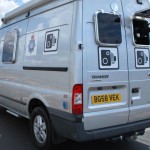Full marks to First York who responded within an hour to our complaints about reliability on the number 4 bus route. A senior manager readily accepted that improvements had to be made.
He suggested, though, that these might not take effect until the autumn.
The idea of appointing conductors – to reduce boarding, and hence journey, times – was rejected on cost grounds. First do, however, want to introduce cashless ticketing as quickly as possible. (Hopefully it will be a more reliable system than the pensioners pass card readers which are currently in use).
The Council are keen to deal with complaints about overhanging trees interfering with the double deckers currently used on the route. We’ve mentioned Foxwood Lane and Tadcaster Road. Please let us know about any other problem locations.
First also say, that the buses which are painted all over with advertising, form part of a national contract. It will be some time before this can be renegotiated.
The key for us though is to see more proactive management of the service. First have confirmed that the vehicles are tracked by GPS so there is no reason why there should be the kind of bunching that we saw earlier in the week (see http://youtu.be/-myCQ-BiOwQ)
A new Area Service Delivery Manager responsible for York and Doncaster has recently been recruited by First.
We believe that improvements can be achieved by returning to a single deck style vehicle. We accept that the design will be different from that of the ftr.
Generally single deckers are quicker to load and many have two doors, reducing the delays caused by the conflict between passengers leaving the bus and those trying to board. Single deckers also provide more space –and easier accessibility – for those with disabilities and those pushing wheelchairs and buggies. Drivers can also reduce journey times by setting off without having to wait for passengers to climb hazardous staircases.
The vehicles used on the park and ride route on Tadcaster Road are a good example of a modern bus.
In future, we hope to see a return to a number 4 service which is reliable, which never fails to pick up from every bus stop where there are passengers waiting to board and which can accommodate all users irrespective of their personal needs.
We expect the Council to cooperate in maintaining the route to a high standard and in dealing promptly with congestion issues. They should also now roll out “next bus arrival time” displays to the busy stops on the route.
Both First and the Council should publish the reliability statistics that they have for this and other bus routes in the City.



